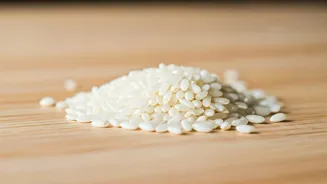Discover the Science of Happiness: Unveiling the Secrets of Joy and Contentment. Dive into how our brains and bodies react to happiness, beyond philosophy. Let's explore the intriguing world of feeling
good!
In the hustle-bustle of our daily lives, chasing deadlines and managing expectations, we often forget to ask ourselves a simple yet profound question: "Am I truly happy?" Happiness, that elusive feeling of contentment and joy, is something we all yearn for.

But what exactly is it, and how can we cultivate more of it in our lives? Forget philosophy; let’s dive into what science has to say about the secrets of happiness.
It's not about winning the lottery or achieving overnight success; it’s often found in the smaller, everyday moments and in understanding how our brains and bodies react to the world around us. So, grab a cup of chai, settle in, and let's explore the science of feeling good!
Understanding brain chemistry for happiness: neurotransmitters regulate mood with serotonin, dopamine, endorphins
One major aspect of understanding happiness lies in comprehending our brain chemistry. Neurotransmitters, those tiny chemical messengers, play a huge role in regulating our mood. Serotonin, often dubbed the "happy chemical," helps stabilize our mood and promote feelings of well-being.
Dopamine, another key player, is associated with pleasure and reward. Think of the satisfaction you feel after completing a challenging task or enjoying a delicious (vegetarian!) meal – that's dopamine at work.
Endorphins, released during exercise or moments of laughter, act as natural pain relievers and mood boosters. Understanding how these chemicals work empowers us to make choices that naturally increase their levels.
So, next time you're feeling down, consider a brisk walk, listening to your favourite music, or spending time with loved ones, all of which can give your brain a little boost of happy chemicals!
Remember, it's not about chasing a constant high, but about finding healthy ways to support your natural emotional balance.
Strong social connections vital for happiness; nurture quality over quantity
Social connection is another cornerstone of happiness. Human beings are social creatures, and our relationships significantly impact our well-being. Studies have repeatedly shown that people with strong social connections tend to be happier, healthier, and live longer.
Spending quality time with family and friends, engaging in meaningful conversations, and offering support to others can all contribute to a sense of belonging and purpose. Loneliness, on the other hand, can have detrimental effects on both our mental and physical health.
So, make an effort to nurture your relationships. Call a friend you haven't spoken to in a while, plan a family picnic, or volunteer your time to a cause you care about. Small acts of connection can make a big difference in your overall happiness.
Remember, it's not about the quantity of relationships, but the quality of connection that matters most. A few genuine, supportive relationships can be far more valuable than a large network of superficial acquaintances.
Practicing gratitude boosts happiness and well-being
Now, let's talk about gratitude. It might sound simple, but practicing gratitude is a powerful tool for boosting happiness. When we take the time to appreciate the good things in our lives, no matter how small, we shift our focus away from negativity and towards positivity.
This can lead to increased feelings of contentment, optimism, and overall well-being. There are many ways to cultivate gratitude. You can keep a gratitude journal, where you write down things you're thankful for each day.
You can express your appreciation to others directly, letting them know how much you value their presence in your life. Or, you can simply take a few moments each day to reflect on the blessings you have.
It’s about training your mind to notice and appreciate the good things, rather than dwelling on the negative. Even on difficult days, there's usually something to be grateful for, even if it's just having a roof over your head or a hot cup of tea.
Mindfulness helps break free from stress, appreciate life's moments fully
Mindfulness, the practice of paying attention to the present moment without judgment, is another key ingredient in the happiness recipe. In today's fast-paced world, we're often caught up in our thoughts, worrying about the future or dwelling on the past.
Mindfulness helps us break free from this cycle and fully experience the present moment. This can lead to a greater appreciation for life's simple pleasures and a reduced sense of stress and anxiety. There are many ways to practice mindfulness.
You can try meditation, focusing on your breath and gently guiding your attention back whenever it wanders. You can practice mindful eating, paying attention to the taste, texture, and smell of your food.
Or, you can simply take a few moments each day to focus on your senses, noticing the sights, sounds, and smells around you. The goal is not to empty your mind, but to observe your thoughts and feelings without judgment, allowing them to pass without getting carried away.
Maintain happiness with exercise, diet, sleep; avoid stress
Our physical health and well-being are also intrinsically linked to our happiness. Regular exercise, a balanced diet, and sufficient sleep are all crucial for maintaining a positive mood. Exercise releases endorphins, which, as we discussed earlier, have mood-boosting effects.
A healthy diet provides our brains with the nutrients they need to function optimally. And adequate sleep allows our bodies and minds to rest and recharge. Conversely, lack of exercise, a poor diet, and sleep deprivation can all contribute to feelings of stress, anxiety, and depression.
So, make sure you're taking care of your physical needs. Aim for at least 30 minutes of moderate-intensity exercise most days of the week. Focus on eating whole, unprocessed foods. And prioritize getting seven to eight hours of sleep each night.
Remember, taking care of your body is an act of self-care that can have a profound impact on your overall happiness.
Having a sense of purpose is crucial for happiness, find what brings meaning
Finally, having a sense of purpose and meaning in life is essential for long-term happiness. When we feel like our lives have a purpose, we're more likely to experience feelings of fulfillment, satisfaction, and well-being. This purpose can come from many different sources.
It could be your work, your family, your hobbies, or your involvement in a cause you care about. The key is to find something that gives you a sense of meaning and that aligns with your values. If you're feeling lost or directionless, take some time to explore your interests and passions.
What activities do you enjoy? What values are important to you? How can you use your skills and talents to make a difference in the world? Finding your purpose is a journey, not a destination. It may evolve over time as you grow and change.
But the important thing is to keep searching and keep striving to live a life that feels meaningful and fulfilling. So strive to find what makes you happy.
AI Generated Content. Glance/InMobi shall have no liability for the content











